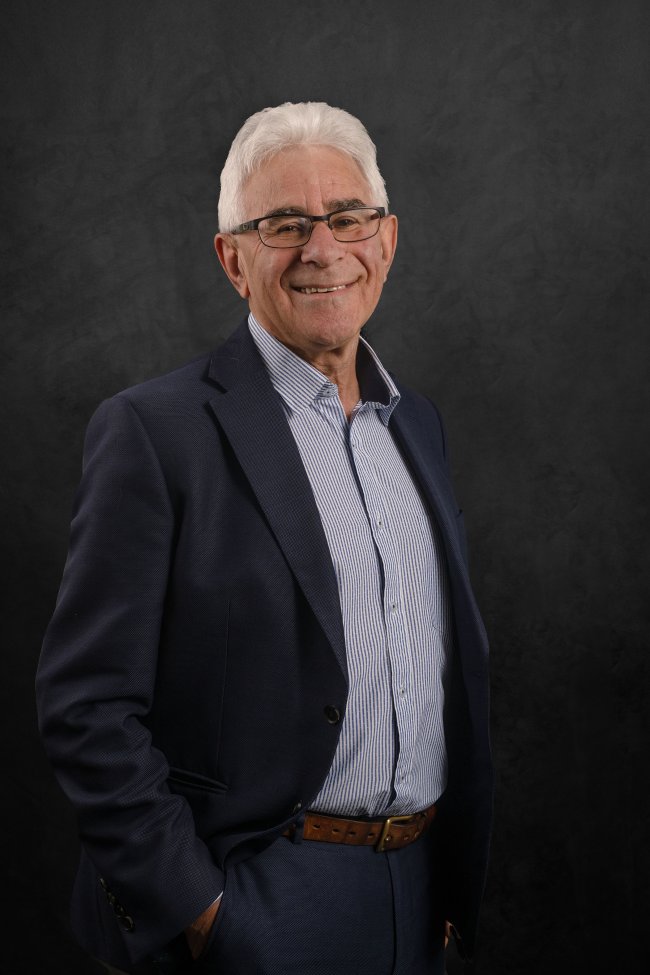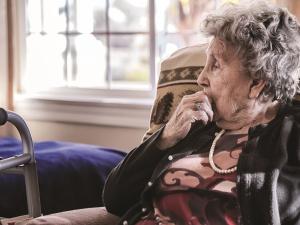Respiratory physician Lutz Beckert considers chronic obstructive pulmonary disease management, including the prevention of COPD, the importance of smoking cessation and pulmonary rehabilitation, and the lifesaving potential of addressing treatable traits. He also discusses the logic of inhaler therapy, moving from single therapy to dual and triple therapy when indicated, as well as other aspects of management
Seeking welfare guardians for patients with reduced capacity
Seeking welfare guardians for patients with reduced capacity

“The current law not terribly workable”
An elderly woman who starved to death because her adult son had mental health issues and couldn’t look after her properly is the type of tragic outcome Welfare Guardians Trusts New Zealand aims to prevent.
The organisation, which provides help for people who lack the mental capacity to make health and welfare decisions, is expanding and looking for volunteers.
It has trusts in Waikato, Whanganui, Wellington (including the Hutt Valley), Otago (Dunedin and Central Otago,) and Canterbury, which also covers the West Coast. Steering committees are setting up trusts in Invercargill, Hamilton and Auckland.
Welfare guardians are appointed by the court if someone has dementia or is severely intellectually disabled, for example; and doesn’t have a relative or friend who can apply to the courts on their behalf about things like non-urgent medical treatment or accommodation, for example, moving into a resthome. It doesn’t include financial or property matters.
Lawyer Geoff Mirkin MNZM set up the first such trust in Dunedin 11 years ago after hearing from DHB social workers how difficult it was to find health and welfare advocates.
Many families were dysfunctional, or the person’s family were all dea. One intellectually handicapped person was an only child, whose parents had both passed away. Mr Mirkin and two hospital social workers, who were involved in elder care, set up a charitable trust to appoint and train volunteers to become welfare guardians. An elder abuse coordinator from Age Concern was also brought on board.
Many people who hold enduring powers of attorney are unsuitable or have their own mental health and paranoia issues. Mr Mirkin says recently a man removed from her house everything his mother could use to cook or make a cup of tea and refused DHB services, saying he was providing all her care and food. However, he wasn’t, and by the time police broke into her house, she was lying on the floor having not eaten for days.
Mr Mirkin says she died soon after from malnutrition. In a case like that, a doctor could contact an elder abuse coordinator from Age Concern and a welfare guardian could be appointed by the court to replace the son.
He once had to apply for a court order for someone to have an ingrown toenail removed because that person didn’t have an advocate with enduring power of attorney. He says if a GP thinks a patient lacks the capacity to make medical decisions like that, they can refer them to their local Welfare Guardians Trust for help.
Due to a shortage of psychogeriatricians, a GP may also be called upon to decide whether a patient has the capacity to make their own health and welfare decisions.
Wellington Welfare Guardianship Trust chair Ben Gray, formerly a GP at Newtown Union Health Service in Wellington, says Dunedin lawyer Alison Douglass has developed a good tool for assessing capacity – see below.
As the population ages, demand for welfare guardians has grown. However, Mr Mirkin says with two people having to work in most households, it’s harder to find volunteers.
Dr Gray says welfare guardians tend to be retired professionals from the legal or health sectors.
The organisation recruits volunteers and trains them up. It meets them to see if they’re suitable and organises police checks. Hospital social workers request welfare guardians and the trust finds volunteers to match in the same area.
People who don’t have a welfare guardian or haven’t given anyone enduring power of attorney can be in legal limbo, says Dr Gray. For example, an elderly person is admitted to hospital with pneumonia, but they have dementia and aren’t coping at home. The process of applying for welfare guardianship can take weeks so a hospital can obtain a court order to send the patient to a resthome.
However, there’s still no one to make decisions for them. Dr Gray says a 2018 Human Rights Commission report This Is Not My Home showed thousands of older people in aged-care facilities had technically speaking been abducted because no one had consented to them being there.
“The current law not terribly workable,” says Dr Gray. The Law Commission is reviewing the law relating to adult decision-making capacity. It is consulting this year and will report to the justice minister at the end of next year.
We're publishing this article as a FREE READ so it is FREE to read and EASY to share more widely. Please support us and the hard work of our journalists by clicking here and subscribing to our publication and website






![Barbara Fountain, editor of New Zealand Doctor Rata Aotearoa, and Paul Hutchison, GP and senior medical clinician at Tāmaki Health [Image: Simon Maude]](/sites/default/files/styles/thumbnail_cropped_100/public/2025-03/Barbara%20Fountain%2C%20editor%20of%20New%20Zealand%20Doctor%20Rata%20Aotearoa%2C%20and%20Paul%20Hutchison%2C%20GP%20and%20senior%20medical%20clinician%20at%20T%C4%81maki%20Health%20CR%20Simon%20Maude.jpg?itok=-HbQ1EYA)
![Lori Peters, NP and advanced health improvement practitioner at Mahitahi Hauora, and Jasper Nacilla, NP at The Terrace Medical Centre in Wellington [Image: Simon Maude]](/sites/default/files/styles/thumbnail_cropped_100/public/2025-03/2.%20Lori%20Peters%2C%20NP%20and%20advanced%20HIP%20at%20Mahitahi%20Hauora%2C%20and%20Jasper%20Nacilla%2C%20NP%20at%20The%20Terrace%20Medical%20Centre%20in%20Wellington%20CR%20Simon%20Maude.jpg?itok=sUfbsSF1)
![Ministry of Social Development health and disability coordinator Liz Williams, regional health advisors Mary Mojel and Larah Takarangi, and health and disability coordinators Rebecca Staunton and Myint Than Htut [Image: Simon Maude]](/sites/default/files/styles/thumbnail_cropped_100/public/2025-03/3.%20Ministry%20of%20Social%20Development%27s%20Liz%20Williams%2C%20Mary%20Mojel%2C%20Larah%20Takarangi%2C%20Rebecca%20Staunton%20and%20Myint%20Than%20Htut%20CR%20Simon%20Maude.jpg?itok=9ceOujzC)
![Locum GP Helen Fisher, with Te Kuiti Medical Centre NP Bridget Woodney [Image: Simon Maude]](/sites/default/files/styles/thumbnail_cropped_100/public/2025-03/4.%20Locum%20GP%20Helen%20Fisher%2C%20with%20Te%20Kuiti%20Medical%20Centre%20NP%20Bridget%20Woodney%20CR%20Simon%20Maude.jpg?itok=TJeODetm)
![Ruby Faulkner, GPEP2, with David Small, GPEP3 from The Doctors Greenmeadows in Napier [Image: Simon Maude]](/sites/default/files/styles/thumbnail_cropped_100/public/2025-03/5.%20Ruby%20Faulkner%2C%20GPEP2%2C%20with%20David%20Small%2C%20GPEP3%20from%20The%20Doctors%20Greenmeadows%20in%20Napier%20CR%20Simon%20Maude.jpg?itok=B0u4wsIs)
![Rochelle Langton and Libby Thomas, marketing advisors at the Medical Protection Society [Image: Simon Maude]](/sites/default/files/styles/thumbnail_cropped_100/public/2025-03/6.%20Rochelle%20Langton%20and%20Libby%20Thomas%2C%20marketing%20advisors%20at%20the%20Medical%20Protection%20Society%20CR%20Simon%20Maude.jpg?itok=r52_Cf74)
![Specialist GP Lucy Gibberd, medical advisor at MPS, and Zara Bolam, urgent-care specialist at The Nest Health Centre in Inglewood [Image: Simon Maude]](/sites/default/files/styles/thumbnail_cropped_100/public/2025-03/7.%20Specialist%20GP%20Lucy%20Gibberd%2C%20medical%20advisor%20at%20MPS%2C%20and%20Zara%20Bolam%2C%20urgent-care%20specialist%20at%20The%20Nest%20Health%20Centre%20in%20Inglewood%20CR%20Simon%20Maude.jpg?itok=z8eVoBU3)
![Olivia Blackmore and Trudee Sharp, NPs at Gore Health Centre, and Gaylene Hastie, NP at Queenstown Medical Centre [Image: Simon Maude]](/sites/default/files/styles/thumbnail_cropped_100/public/2025-03/8.%20Olivia%20Blackmore%20and%20Trudee%20Sharp%2C%20NPs%20at%20Gore%20Health%20Centre%2C%20and%20Gaylene%20Hastie%2C%20NP%20at%20Queenstown%20Medical%20Centre%20CR%20Simon%20Maude.jpg?itok=Z6u9d0XH)
![Mary Toloa, specialist GP at Porirua and Union Community Health Service in Wellington, Mara Coler, clinical pharmacist at Tū Ora Compass Health, and Bhavna Mistry, specialist GP at Porirua and Union Community Health Service [Image: Simon Maude]](/sites/default/files/styles/thumbnail_cropped_100/public/2025-03/9.%20Mary%20Toloa%2C%20Porirua%20and%20Union%20Community%20Health%20Service%20in%20Wellington%2C%20Mara%20Coler%2C%20T%C5%AB%20Ora%20Compass%20Health%2C%20and%20Bhavna%20Mistry%2C%20PUCHS%20CR%20Simon%20Maude.jpg?itok=kpChr0cc)